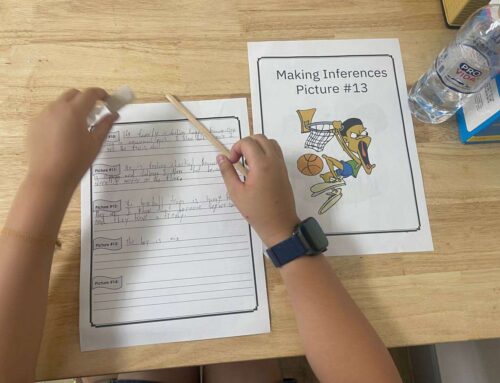In schools, it’s common to see students who struggle with attention, behavior, or emotional regulation. But not every challenging behavior points to the same underlying issue. Oppositional Defiant Disorder (ODD), Attention-Deficit/Hyperactivity Disorder (ADHD), and Anxiety Disorders can overlap in how they present—but they require different responses. This guide unpacks the differential signs teachers and parents in Phnom Penh should look for, and practical strategies that support students effectively.
How the conditions differ in the classroom
Oppositional Defiant Disorder (ODD)
-
Core pattern: frequent anger, arguing, or refusal toward authority figures.
-
In class: refuses instructions, deliberately annoys peers, blames others.
-
Key feature: intentional resistance—the child pushes back, even when capable.
Attention-Deficit/Hyperactivity Disorder (ADHD)
-
Core pattern: inattention, hyperactivity, impulsivity.
-
In class: blurts answers, fidgets constantly, forgets steps, leaves work unfinished.
-
Key feature: skill gap—the child wants to comply but struggles with self-regulation.
Anxiety Disorders
-
Core pattern: excessive worry, fear, avoidance.
-
In class: avoids participation, asks for reassurance, freezes during tests, complains of headaches or stomachaches.
-
Key feature: fear-based avoidance—the child pulls back to reduce stress.
For more on ADHD profiles, see our ADHD Cambodia guide.
Classroom response strategies
For students with ODD
-
Stay calm, set clear boundaries: avoid power struggles.
-
Offer choices: “Do you want to start with reading or math?” reduces resistance.
-
Focus on relationship-building: positive reinforcement goes further than punishment.
See also: tips on fostering positive behavior support.
For students with ADHD
-
Break down tasks: shorter instructions, chunked lessons.
-
Movement breaks: allow fidget tools or active learning.
-
External supports: timers, checklists, and visual strategies help them stay organized.
Explore our resources on teaching students with ADHD.
For students with Anxiety
-
Predictability: clear routines lower stress.
-
Gradual exposure: start with small speaking tasks before whole-class presentations.
-
Safe space: allow quiet zones or sensory rooms—similar to the benefits outlined in preventing sensory overload in schools.
Why the distinction matters in Phnom Penh
In many classrooms here, “difficult behavior” gets lumped together. But mislabeling a child with ODD when the root issue is anxiety—or mistaking ADHD for “laziness”—can block the right support. That’s why families increasingly turn to OrbRom Center for developmental assessments. A structured evaluation identifies whether symptoms reflect behavioral defiance, regulation difficulty, or fear-based avoidance—and creates a tailored plan for school and home. Learn more about our developmental assessments.
Bottom line
-
ODD looks like willful defiance.
-
ADHD looks like difficulty sustaining attention and control.
-
Anxiety looks like avoidance driven by fear.
Each requires a different lens. With evidence-based strategies and proper assessment, Phnom Penh schools and families can reduce conflict, increase engagement, and help children thrive.
We are the only Preschool specialized on children with special needs in PhnomPenh.
- Internationally qualified teachers
- Cambodia’s largest sensory room
- Outdoor swimming pool
- Covered outdoor playground
📞 Phone: 077.455.993
Telegram Link: https://t.me/OrbRom





